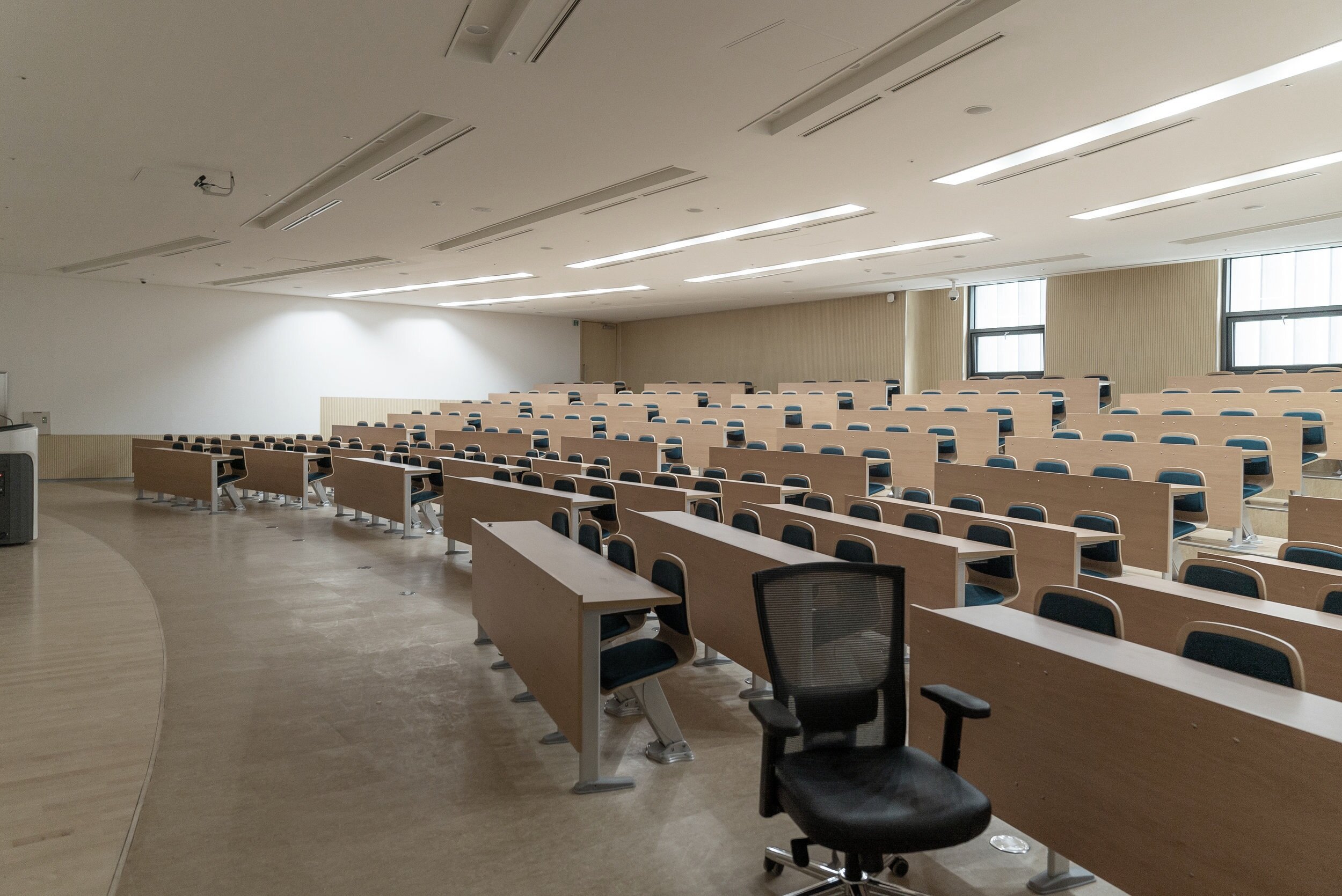How To Study In Germany: 6 Short Steps From Idea To Admission
Yana Immis
This step-by-step guide to studying abroad will save you from the confusion 🤷♂️ and the overwhelming amount of information available on the internet. 🤩
With its trendy cities and low tuition fees, it’s not hard to see why Germany remains at the top of the non-native English-speaking countries for international students.
If you want to study abroad and chose Germany as your destination, you are in the right place.
This step-by-step guide to studying in Germany will save you from the confusion and the overwhelming amount of information available on the internet. Simply follow these steps to secure yourself a timely admission to a university and prepare for your stress-free relocation.
Step 1: Budget Evaluation
When you are considering studying abroad, the first and the most important is to calculate your budget and the possibility of obtaining a scholarship or a loan.
The majority of universities in Germany do not provide accommodation, hence you need to calculate accommodation & blocked account costs separately from the budget you allocate to studies.
If you are aiming for low tuition or free of tuition fees courses at state universities, please refer to the Uni Assist website and proceed with your application accordingly. All the necessary information may be found there.
Step 2: Program Choice
This step is dedicated to deciding which course you are interested in, according to your budget, language knowledge and preferences. It is highly recommended to start this process not less than 3 months before decision making. According to the budget, you can aim for different programs:
1000 € - 3000 € annual budget
This is a sufficient budget for short- and mid-term German language lessons in Germany.
The majority of the University programs in Germany are in the German language, hence if you know the language, you can secure yourself admission in free programs after completion of the course.
3000 € - 6000 € annual budget
This is a sufficient budget for long-term German language lessons as well as Studienkolleg – 1-year preparatory course in the German language. There are no Studienkolleg in the English language.
Successful Feststellungsprüfung (exam after 1 year of Studienkolleg) guarantees your admission to a free university.
6000 € - 9000 € annual budget
This is a minimum budget for the Private University Foundation, Bachelor (B.A. / B.Sc.) and Master (M.A. / M.Sc) programs in the English or the German languages.
9000 € - 12000 € annual budget
This is a good budget for Private University or Business School Foundation, Bachelor (BBA / B.A. / B.Sc.) Master (M.A. / M.Sc) programs in the English or German languages.
It is also a minimum budget for MBA programs in the English language.
12000 € and above
This is a good budget for High-Ranked Private University or Business School Foundation, Bachelor (BBA / B.A. / B.Sc.) Master (M.A. / M.Sc) programs in the English or German languages.
It is also a good annual budget for the MBA programs in the English language.
Step 3: Documents Preparation
According to your budget and the selected direction, you need to evaluate the level of your education and language knowledge.
Recognition
To study in Germany you need to have a recognized Hochschulzugangsberechtigung (HZB) - a confirmation that your degree is accredited. You can see if you qualify for studies in Germany with your diplomas on Anabin (KMK) website. If you are allowed to take up higher education studies at a state-recognized university in your country, the possibility that your foreign diploma is recognized as an equivalent to German is high. However, you need to confirm it here.
If your school leaving certificate allows you to study in your home country, you should be able to secure a place to study in Germany as well. Make sure to check if your secondary school leaving certificate (High School Diploma, Matura, A-Levels, IB, American Diploma with or without SAT, Bachilerato, etc) is equivalent to the German Abitur. A-Level and IB have strict subject requirements. Contact me to find out more.
In the case when a diploma from your home country is not equivalent to a German diploma you will also learn on that website if you need to take further examinations to be granted access to German Higher Education (Studienkolleg).
In Studienkolleg, you will learn the German language as well as selected a list of subjects that are relevant for the chosen major. Students with qualifications from outside Europe may need to take Feststellungsprüfung entrance examination after attending a preparatory Studienkolleg. Exceptions apply. Contact me to see if you qualify for an exception.
If you already have a Bachelor Degree, you can apply for a Master program in Germany. With relevant work experience, you can also consider MBA programs.
If you have already completed a few semesters or years at an accredited university, your credits can be taken into consideration and you can apply as a transfer student.
Language
You’ll also need to check the language requirements. Would you like to study in English, German or both languages? How well can you speak, read and write?
One of the main prerequisites of the German visa is German language knowledge (A1 to C1 according to the situation). Should the university teach in English, you are required to submit confirmation of the English knowledge.
There is a myriad of language schools & preparatory courses in Germany, where you can take German language lessons from scratch (as an example online), learn the language while you are preparing for a visa. This way, when you arrive, you will have a minimum command of the German language.
Step 4: Research
Start researching at least 3 months before deciding. Mind the deadlines of the universities & make sure to read about the school & university system in Germany before you proceed.
The German Academic Exchange Service (DAAD) has a database of almost 2000 programs available to search from, including 1,389 programs in English. There are a lot of mixed programs available as well (English and German).
Types of Programs by Visa Type:
German Language Courses:
Short-term (below 90 days with Schengen Visa)
You are not required to open the Blocked Account with this visa type
You need to go back to your country once you finish the course
You are not allowed to work with this visa
You cannot apply to universities or extend visa in Germany
Long-term (above 90 days with National Visa)
You must sign up with Studienkolleg / Master enrollment program
Language visa is not a stand-alone visa. You need to have an additional course or university admission plan in mind
You are required to open the Blocked Account with this visa type
You can stay in Germany to apply to universities with this visa (up to 2 years from the entry to Germany)
You are not allowed to work with this visa (exception: Christmas & Easter holidays only)
Preparatory Courses (Studienkolleg)
Long-term (above 90 days with National Visa)
You are required to open the Blocked Account with this visa type
You can stay in Germany to apply to universities with this visa (up to 2 years from the entry to Germany)
You are not allowed to work with this visa (exception: Christmas & Easter holidays only)
University Courses (Foundation, Bachelor, Bachelor, Master, MBA)
Long-term (above 90 days with National Visa Type D)
You are required to open the Blocked Account with this visa type
You can stay in Germany after graduation to search for a job (18 months)
You are allowed to work with this visa (20 hours / week – 240 days / year; 40 hours / week – 120 days / year)
Majority of Business Programs include an Internship (work semester) at a company
According to what plays the biggest role in your university selection, you need to research more on the topics of:
Location
Accreditation
Ranking
Major Choice
Minimum Entry Requirements (GPA)
Step 5: University Choice and Application
Finding a university in Germany according to your major will not be a problem, because of the available opportunities. The amount of choices and quality is very high, the question rather is if you have a preferred city in mind.
I recommend to apply to several universities (up to 5) instead of counting on just one, this broadens your choices, escalates your success chances and you would not waste time if one university does not provide a positive answer. Finding a university and a study program may take time if you haven’t given much thought to this, please let me know if you need assistance in your search.
Consider university intakes and deadlines before making your application and make sure to have all documents in order. Strictly follow the admission process of an individual university or ask me for assistance.
Application Documents Overview:
Now that you have decided what university and what study program you want to attend you must collect your documents and organize them.
In Germany, you need to submit relevant to future studies education level proof. It means if you have a Bachelor and Master degrees already, but you are applying for a Master in Germany, you need to submit your Bachelor Degree.
Education proof
11th or 12th grade result for Studienkolleg / Bachelor
Bachelor result for Master
Diplomas are generally not accepted
HND or community college is difficult to have recognized in Germany and to have them accepted towards bachelor studies etc
If you already have Master or MBA degree - make sure to have it ready for application as well
Language proof
English
IELTS
TOEFL
PTE
Waiver*
German
DSH
Test Daf
Goethe Zertifikat
TELC
Alternative
Additional Documents
Passport, motivation statement (very important)**, Application Form with Application Fee**, Financial Solvency***, CV (if relevant), work experience proof (if relevant).
Important Facts
If all of your documents are in German it is a safe bet. Some universities also accept documents in English.
Once you have gathered all the necessary documents for admission, go ahead and apply directly unless the requirements state to go through the Uni Assist.
* Generally studying in English medium previously is not enough unless university is British/American or alike. If English was used actively at work (and you have sufficient work experience to prove it - it might also work.
**To be prepared after university selection has been done.
**Some universities will ask you for proof you have sufficient funds to cover 1-year tuition fees. The blocked account might not be enough - be ready to submit additional proof.
Still unsure which blocked account option to choose? Choose Coracle! (The best option for international students in 2020-2024)
Some universities provide application fee & English test waiver as well as scholarship options. Contact me to find out more.
Step 6: Admission & Visa
Admission to private universities and language schools can take 1-3 weeks. Whereas state universities and Studienkolleg on average take 1-3 months to get back to the applicant with the admission decision.
Conditional (Provisional) Offer Letter
Once you have secured admission at a university or language school where fees apply, the school will send you a provisional (conditional offer letter).
-> You have 1 or 2 weeks’ time to consider other options and to finalize your decision.
This is the right time to
Apply for a Blocked Account opening
Schedule your visa appointment date
Provisional Acceptance letters cannot be used to apply for a visa, but can already be used to open your Blocked Account and to transfer the sum. It is highly recommended to start the Blocked Account procedure from the moment you have received the offer.
To avoid missing out on the visa appointment time & date, schedule it right away. It is easier to cancel it, should you not make it.
On average, the university gives you 10 days to pay a security deposit to save your seat in the program. To finalize your decision, the enrollment fees to secure place in the program are to be paid (from 1000 to 4000 Euro according to university choice).
Once the fees have been paid, you receive visa documents per post or per email.
Visa Application
Due to queues in the German embassies, make sure to make a timely application at the Consulate or the Embassy nearest to you. If you are living in a different from your home country, you can also apply for a German visa in the German embassy there.
Things to keep in mind:
Make sure to collect all the required documents in one file and to arrive on time for your visa appointment
Insurance & Accommodation confirmations are not required for visa application. Generally, applicants are asked to submit international insurance covering you for 90 days abroad when picking up the passport from the embassy (apply here for the best German Insurance)
I highly recommend you to start searching for accommodation 90 days prior to arrival in Germany.
If you have a large gap between previous studies and future studies in Germany, it is not a problem for the German embassy, as long as you can clarify it in your motivational statement and CV (Curriculum Vitae) – tell more about your work experiences and occupations
General National Visa Rule waiting times are 19 working days (1 month), but due to high queues in some countries, a decision may last up to 3 months.
In difficult cases (previous visa refusals to Germany or other countries), the decision may be up to 6 months.





















